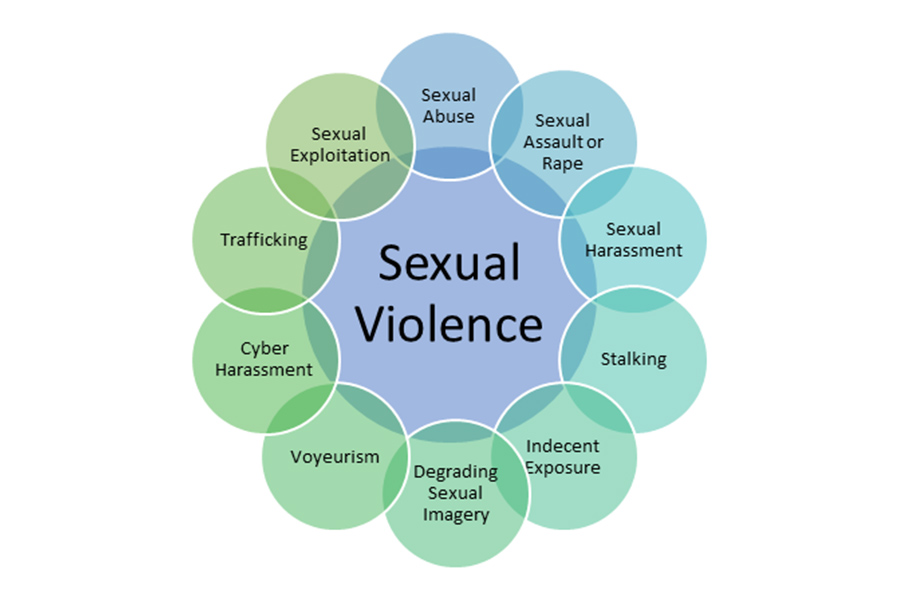The Woodhull Sexual Freedom Town Hall, a daylong event focused on ending sexual violence, will take place Dec. 2 at First Unitarian Church.
The program, which begins at 9 a.m., includes a keynote speech, workshops and strategy sessions. It is sponsored by the Woodhull Freedom Foundation, a Washington, D.C., organization dedicated to ending sexual violence and promoting sexual freedom. The town hall is open to everyone; lunch and child care will be provided. There is a suggested $10 donation, but no one will be turned away.
The town hall is taking place as new reports of sexual improprieties by powerful men are emerging almost daily, with the #metoo movement burgeoning on social media.
According to Mandy Farsace, Woodhull’s director of sexual freedom events, the purpose of the event is to go beyond naming and shaming. The town hall, she said, is “meant to engage community members in talking about ways to redefine and, ultimately, end sexual violence in our communities.”
Woodhull events typically focus less on problems and more on solutions, Farsace said. That’s partly why the day’s topic is so open-ended. Sexual violence, she explained, includes a broad range of acts, everything from catcalls to unwanted sexually explicit posts on social media to rape.
Philadelphia is actually the first of three cities to host a Woodhull Town Hall. Farsace, a local social worker, described the city as an ideal setting to inaugurate the series. “Philadelphia is a very sex-positive place,” she said. “We also have a great queer community here.”
Philadelphia has a number of grassroots organizations working to mitigate sexual violence. Farsace cited The Attic Youth Center and Women Organized Against Rape (WOAR) as two examples.
Project SAFE, another local organization, will be well-represented at the town hall. According to Aisha Mohammed, who serves on its board, Project Safe is an all-volunteer group working with women of all gender identities and sexual orientations. “We provide services to women who are trading sex or using substances in Kensington, from a harm-reduction approach,” she said.
That approach recognizes the autonomy of these women, whose work leaves them stigmatized and vulnerable. And it’s integral to Project SAFE’s mission. “Harm reduction is basically the philosophy that you meet people where they’re at and you let them take the lead in defining what their needs are and what changes they want to make,” Mohammed said.
On the streets where these women work, the risks are very real. As Mohammed explained, being outdoors, these sex workers have little time to size up potential clients. In addition, they’re worried about being arrested. Even a short stint in jail can jeopardize other much-needed services like methadone treatment, she added.
In fact, Project SAFE’s point of view is that the criminalization of sex work substantially increases the risks these women face. “A really important thing to note is that we don’t believe that using sex and trading sex is inherently risky or harmful,” Mohammed said. “It’s the circumstances in which people are doing it that create the risk.”
LGBT sex workers face unique problems, Mohammed continued. For underage gay youth, many of whom have fled abusive families, sex work is often the only way to earn money. Transgender women encounter added difficulties, sometimes from the police.
“There’s an assumption that if you’re trans, especially if you’re a trans woman of color, that you must be doing some sort of sex work,” Mohammed said.
Fortunately, Project SAFE provides some support. One of its most successful programs is Women’s Night, run in partnership with Prevention Point, another organization serving Kensington.
“Every Tuesday from 6-9, anyone who is female-identified — so that includes trans women as well — can come to Prevention Point and get harm-reduction supplies, a hot shower, clothing, food and get connected to different resources,” Mohammed said.
Women’s Night doesn’t just address basic needs that many people take for granted; it also offers sex workers a sense of solidarity.
That’s a crucial point for Kate D’Adamo, who will deliver the town hall’s keynote speech. A longtime sex-worker advocate, she thinks of sexual violence broadly, viewing it as interconnected with economic inequality, homophobia, misogyny and racism.
“Very often, we understand sexual assault in these really narrow criminal justice-based terms,” D’Adamo said, mentioning terms like “evidence” and “punishment.” “That is necessarily not centering the needs of survivors. It is focusing overwhelmingly on the perpetrators.”
Even if a sex worker navigates the criminal-justice system successfully, it doesn’t guarantee a positive outcome. “A guilty verdict doesn’t necessarily mean you’re healed,” D’Adamo said.
“If the way that we understand this is so black-and-white and narrow and based on all of these theories and working assumptions that are failing people, what does something else look like?” D’Adamo posed.
The Woodhull Sexual Freedom Town Hall will be held Dec. 2 at 2125 Chestnut St.; www.woodhullfoundation.org. To learn more about Project SAFE, visit www.facebook.com/safephila. You can follow Kate D’Adamo on Twitter @KateDAdamo.
